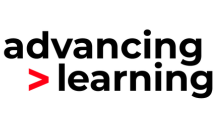An introduction to the importance of scientific enquiry in teaching and learning at primary level
Scientific enquiry lies at the heart of science education and provides the unifying thread that runs though the learner’s journey through primary and secondary education. It is the spark that ignites the enthusiasm of learners, and sustains their interest as they progress through school. It is at primary level that scientific enquiry sets the foundations for the rest of every learner’s science education. The ‘hands-on’ experiences provided for learners will help develop their understanding of the world, and give them the skills to become increasingly independent investigators. So how can we promote our learner’s progress in the skills needed to master scientific enquiry?
At Max Science we believe that we must develop learners’ enquiry skills from an early age at appropriate levels of demand. Only then can we hope to inspire a generation of young scientists as they become independent investigators and creative thinkers over time. To achieve these lofty aims it needs us, as teachers, to understand the true nature of ‘scientific enquiry’ and to develop strategies to teach enquiry skills to learners at different ages.
Within any modern science curriculum the role of scientific enquiry should always be to give all learners access to the excitement of finding things out for themselves. The motivating power of encouraging learners to make decisions themselves, rather than merely following instructions (a feature of illustrative practical work), is a key feature of scientific enquiry. The context of these enquiries is provided by the key scientific concepts, as introduced in the Cambridge International Primary curriculum framework for Stages 1 to 6.At one time, scientific enquiry became synonymous with the fair test, and many learners struggled with the conceptual demands of manipulating variables. This type of enquiry (conducting fair tests) is most suited to the physical sciences (physics and chemistry), as these sciences provide us with situations in which variables can be carefully controlled, and relationships between variables can be found by conducting fair tests.
However, fair tests are not really an appropriate way to investigate many questions, especially those set in biological contexts. This is because in many biological enquiries lots of variables are often out of our control, e.g. in tests involving animals, plants and the environment. This has lead to a wider definition of ‘scientific enquiry’. We now think of scientific enquiry as ‘finding out the answers to scientific questions’. Whilst fair testing is recognised as a valid way to find the answer to some questions, other methods have been acknowledged as just as important. These types of scientific enquiry include:
- biological enquiries (in which sample sizes are often a key consideration),
- exploration (in which changes can be observed, perhaps over an extended period time, and phenomena experienced at first hand),
- classification (in which things can be assigned to groups or identified by characteristics),
- problem solving (in which solutions can involve designing and making systems or apparatus)
- research (in which secondary sources of information are used).
The essential element in all these types of scientific enquiry is that the learners are involved in some way in decision making. Therefore, it is the approach of us, as teachers. that largely determines the degree of enquiry-based skills experienced in any particular activity. In general, good practice in the teaching of scientific enquiry skills is achieved by:
- involving learners in decision making – at first this will be with plenty of support from you but gradually expecting more input and independence from the learners as they become older and familiar with partcular skills;
- planning your enquiry activities carefully, focussing learning outcomes for just one or two enquiry skills – this will make assessment more manageable, avoiding conceptual overload and confusion in the activity
- improving your expertise in the strategies available to develop the skills
- gaining a feel for the progression in the level of demand in particular skills as learners move through the stages of primary education. For example, using your ‘level of support’ as a method to differentiate between individual or groups of learners – enabling you to challenge all learners appropriately
- Using questions to prompt learners to progress to the next step in developing their scientific enquiry skills, both in the introduction to acivities and as the learners are carrying them out.
REFLECTION SECTION
Now you might wish to reflect individually (or even better with your collegues) on the following:
1.What is the main feature that distinguishes an activity as a scientific enquiry as opposed to illustrative practical work?
2. Think of a science activity that you do with your class and how you could deliver it:
i) as an activity to develop scientific enquiry skills
ii) purely focussed on the ‘science content’ as opposed to any scientific enquiry skills?
iii) Evaluate each approach in from the point of view of a) the learner, and b) the teacher.
3. Think of a different scientific enquiry for your class to tackle for each of the different types of scientific enquiry identified above. Namely:
- fair testing
- biological enquiries
- exploration
- classification
- problem solving
- research
4. Consider whether you cover the whole range of types of scientific enquiries in your school’s current Scheme of Work?
In the six months ahead we will look at each of the following scientific enquiry skills. Keep an eye out for our next post!
- Research
- Predicting
- Planning
- Observing and Measuring
- Recording and Presenting
- Concluding
- Evaluating
- Looking at strategies to develop the skills at appropriate levels of demand
- Recognising lines of progression in each skill to help you challenge young scientists towards their next steps in learning.
If you would like to be notified when new blogs are available, please let us know by emailing international.curriculum@macmillaneducation.com



